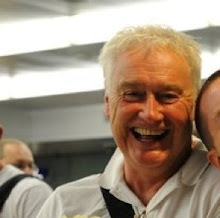
In the living room strewn with tea chests and cardboard boxes it could be cosy Priestley or Coward, ‘Laburnum Grove’ or ‘This Happy Breed’ as an elderly housewife packs away the last of the family belongings before the house move to a peaceful retirement by the sea. But instead of South London we are high on the windswept veldt of KwaZulu Natal where Janet Suzman as Patricia Wiley is leaving the farm she inherited and has sold to developers.
We see her truculent, crude, memory-failing husband Richard, played with brutal intensity by Bernard Kay as an unreconstructed old colonial hand whose bigotry runs deep, before he storms out into the night to do some unexplained task on the hillside. A stranger arrives – another echo of Priestley – the son of one of the farmhands, named ‘Look Smart’ as a boy and whom Patricia had loved like a son and paid for his schooling returning after fifteen years to demand she now face up to some harsh truths about the dreadful event that caused him to leave.
What follows is an hour of possibly the best one-act play seen in London in recent memory.
The writing is so authentic and natural, and Ariyon Bakare as Look Smart has all the fierceness and pride of the emancipated African, but also a far subtler humility when facing an admission of his own self-deception. In other hands, this could have been a predictable exchange of taunts about racism and patronage, but Suzman – who participated in the development of the play with writer Craig Higginson – resists the obvious and in one of the finest performances you can see in London at the moment, delivers an honest and intelligent reading of the white woman who feels responsible for her actions but cannot find the resource to atone for them completely, nor to assuage the pains and isolation she feels from her own perspective on the past.
The strength of Suzman’s acting is palpable when you feel the strain of her frustration in attempting to explain her thoughts and feelings, and realize that this is not stage technique, but actual emotional truth.
It’s true that the plotting is somewhat over-tidy and the political issues familiar from Athol Fugard and other writers, but in an 80-minute piece there must be some compromises.
This is a play about black and white people whose issues are so far from black and white that you must follow them intently to the end which, even if you can see it coming, is enthralling.








